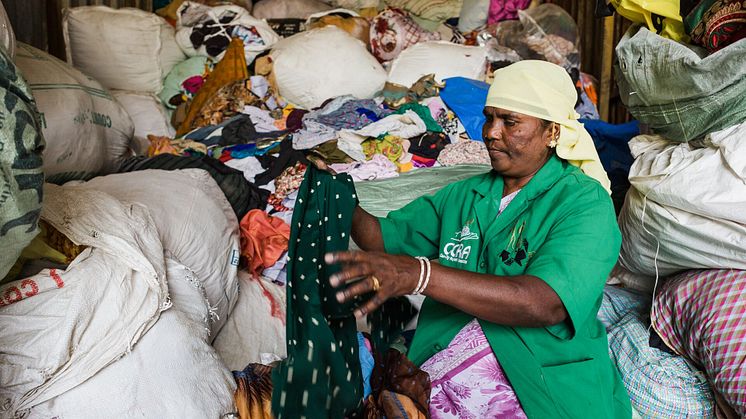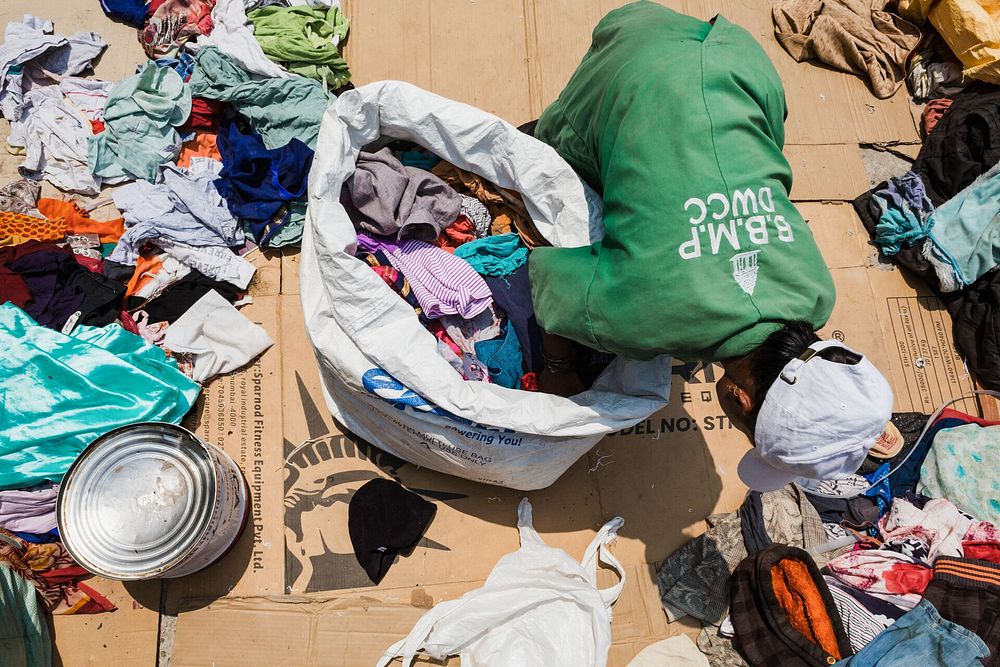
News -
From pilot to policy: waste picker-led circularity model scales to 12 Indian cities
BENGALURU, INDIA – 19 JUNE 2025: Saamuhika Shakti, a first-of-its-kind collective impact initiative in Bengaluru, India, is proving how circularity can scale when it’s designed for both climate and social impact.
In a country where textile waste adds to landfills, the initiative cuts emissions while supporting informal waste workers. A solution taking on both the city’s textile waste crisis and the social situation for its informal workers is delivering measurable results – on track and ahead of schedule.
The project that began as a small pilot in 2021 has now grown into a citywide system centred on inclusive circularity and operated by waste pickers. A central textile recovery facility works hand-in-hand with 16 neighbourhood sorting centres that process post-consumer textile waste that would otherwise end up in landfills.

As awareness builds, public participation is accelerating. A recent campaign led by BBC Media Action under the slogan “Got Old Clothes?” helped double the city’s textile collections in just one month, diverting over 1,100 kilograms of used clothing from landfill.
The initiative is part of the larger multi-stakeholder programme Saamuhika Shakti and is developed by Circular Apparel Innovation Factory (CAIF) and implemented by Hasiru Dala. The textile-specific project aims to divert 800,000 kilograms of post-consumer textile waste and support 500 waste picker livelihoods by 2026. Progress is ahead of schedule: 55 percent of the waste diversion target is already achieved, with more than 400 waste pickers supported so far. Its success lies in a collaborative design where municipal authorities, NGOs, and waste picker collectives jointly set the terms, ensuring shared ownership and long-term viability.
Now, the model is being scaled nationally. The system pioneered in Bengaluru is currently being replicated and implemented in 12 additional Indian cities, positioning waste pickers as central actors in India’s circular transformation.

“What makes this model so powerful is that it’s not a top-down solution. It’s been co-created with waste pickers, who know the problem best. It proves that circularity isn’t just about materials or recycling tech; it’s about how we design systems that are inclusive, effective, and climate-resilient”, says Maria Bystedt, Programme Director at H&M Foundation. “We’re seeing that when waste pickers are recognised as essential climate actors, cities can build solutions that scale and inspire new models of inclusive circularity globally”.
About Saamuhika Shakti
A multi-actor initiative, funded by H&M Foundation, with the goal to propel waste pickers from the fringes of society to become integral and recognised as parts of it.
Project time period: 2020 — 2026
Financial Support: Phase 1: SEK 111 million (Approx USD 10.4 million), Phase 2: SEK 121 million (Approx USD 11 million)
Partners: Bal Raksha Bharat, BBC Media Action, Circular Apparel Innovation Factory (CAIF), Enviu, Hasiru Dala, Sambhav Foundation, Sattva Consulting, Social Alpha, Sparsha Trust, Udhyam Learning Foundation, WaterAid India





